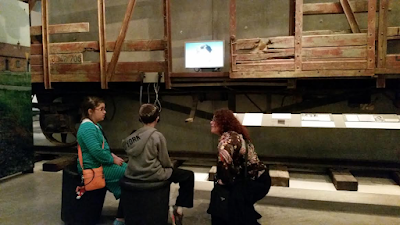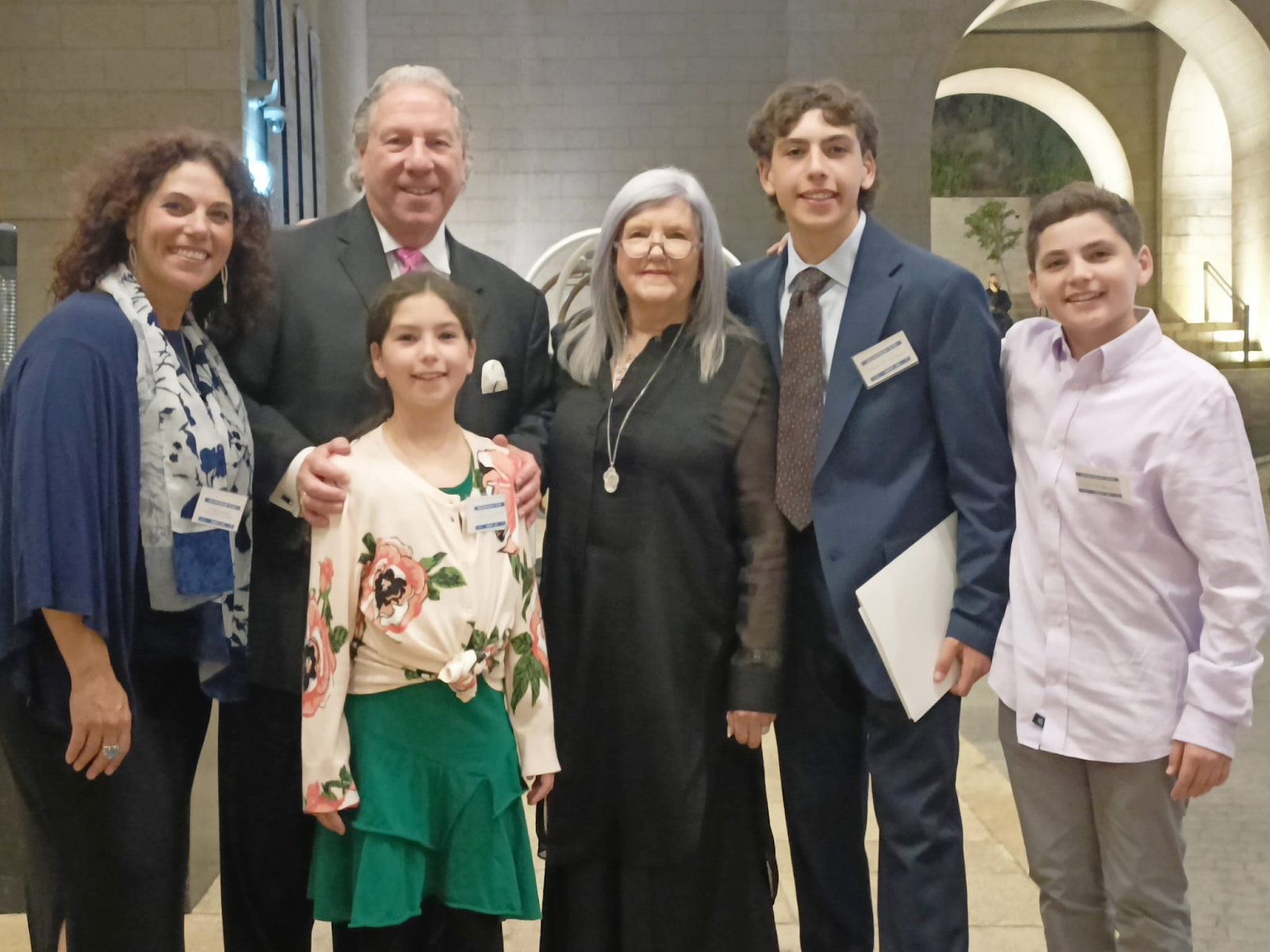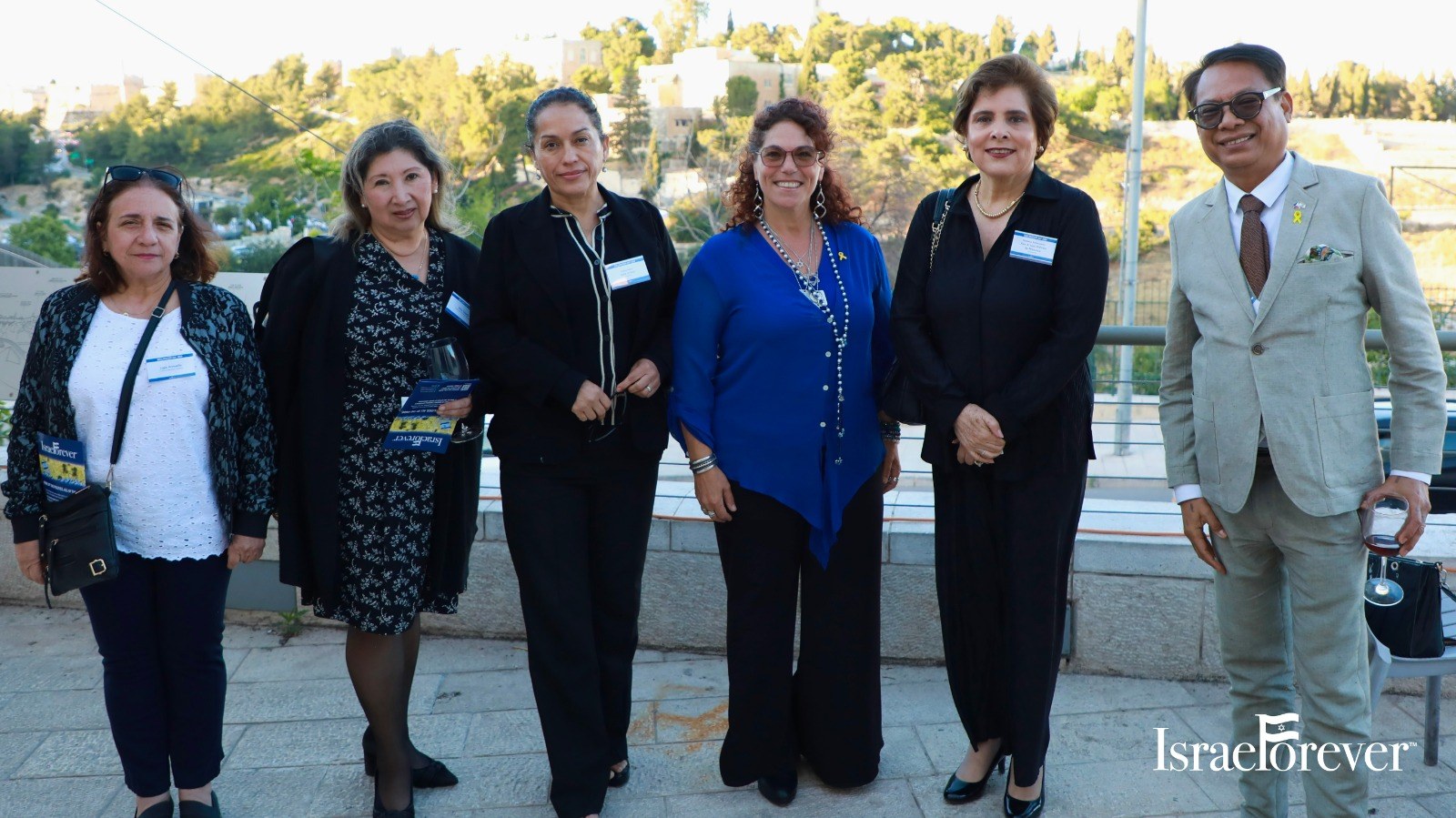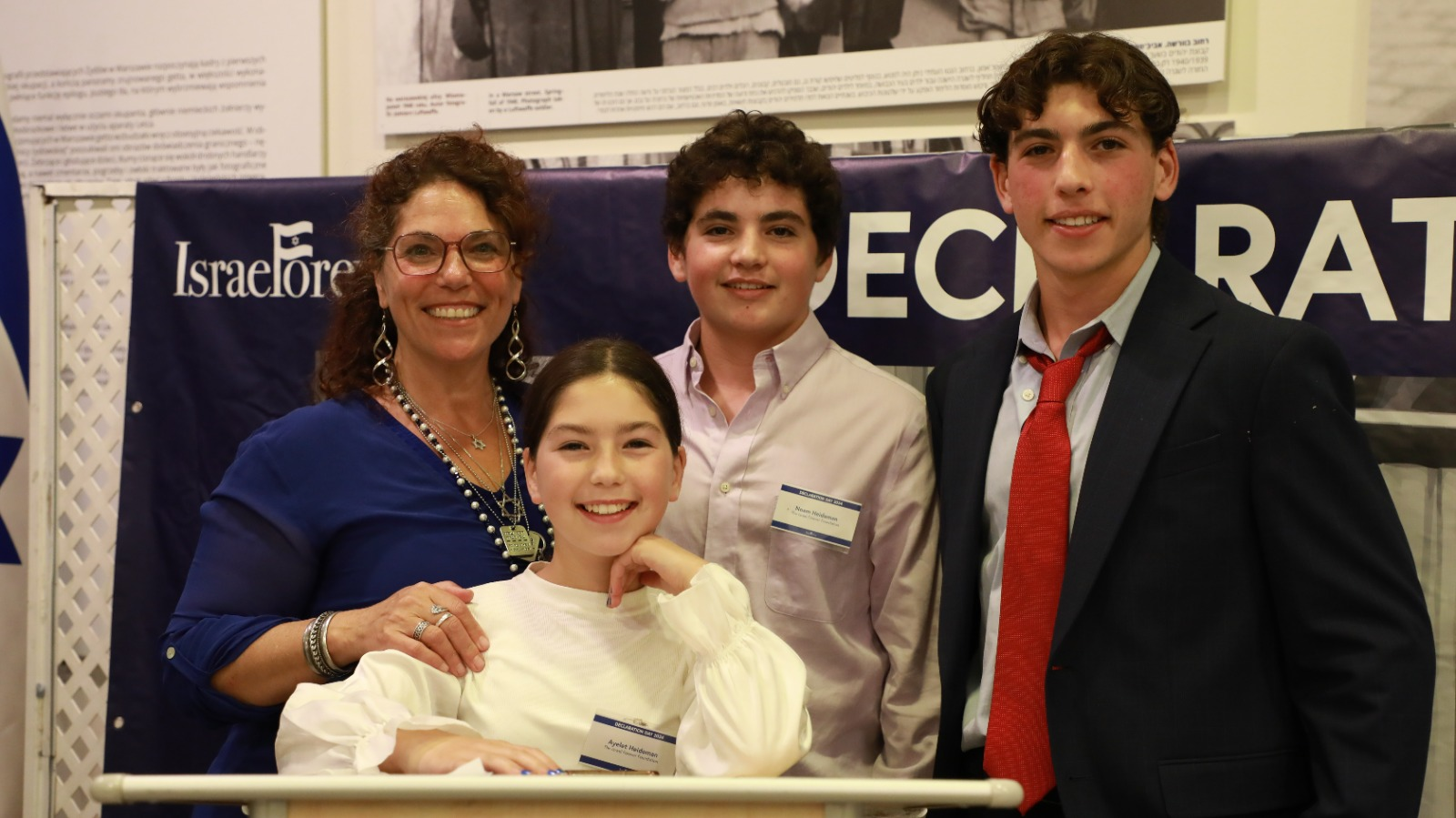The October 7 massacre did not emerge from a vacuum—and historian Rafael Medoff’s
new book traces the long ideological road that led to it.
Medoff,
a prodigious scholar of Jewish history and a prolific writer, is the founding
director of The David Wyman Institute for Holocaust Studies and the author of
more than twenty books on Jewish history, Zionism, and the Holocaust. His
latest, The Road to October 7: Hamas, the
Holocaust, and the Eternal War against the Jews, is a grim but
important read—one that places the October 7, 2023 massacre within a wider
historical context and shows how it echoes the long, tragic history of the
oldest hatred: antisemitism.
The Road to
October 7
is a two-part book. In Part 1, The
Present: Understanding October 7 and Its Aftermath, Medoff offers a
detailed account of that black day and what happened in its wake. He traces the
rise of Hamas and the sickening ideology that underpins its hatred and
bloodlust—including its affinity for Mein
Kampf. Medoff shows how Arab children are taught to hate and kill Jews
through what he describes as “jihad education.” He also examines the campus
protests, along with the blind eye turned toward them by university boards,
administrators, and presidents. The book explores the recent history of terror,
and the ways in which anti-Jewish libels are propagated and mainstreamed.
Part
2, The Past: Tracing the Echoes of
History, highlights unsettling similarities between the atrocities of
October 7 and earlier pogroms in medieval Europe, Czarist Russia, and Ukraine.
Medoff examines both the Holocaust and a century of Arab terror—and how each
contributed to what happened on that black Sabbath: October 7, 2023. This
section is particularly illuminating for its documentation of how American
universities cultivated alliances with Nazi Germany during the 1930s—an echo of
the same institutions that later tolerated pro-Hamas protests on campus.
In
the interview that follows, Medoff discusses the long ideological road to
October 7—how antisemitic education and radical Islamic theology shape
violence, why so many Western institutions minimized or rationalized the
massacre, and why the events of that day cannot be understood in isolation. He
also reflects on the historical echoes that make October 7 so uniquely
haunting—and on what compelled him to write this book now.
The Road to
October 7: Hamas, the Holocaust, and the Eternal War against the Jews by Rafael
Medoff (The Jewish Publication Society, October 1, 2025), 368 pages. ISBN-13:
978-0827615748.
 |
| Rafael Medoff |
Varda
Epstein: You mention the close cooperation and coordination between the Hamas
terrorists and the Gaza civilians who infiltrated southern Israel on October 7,
citing Kibbutz Nirim Security Chief Daniel Meir who saw 50 armed and uniformed
Hamas terrorists along with “dozens of ordinary Gazans.” Meir described
“complete cooperation between the two groups: Hamas did most of the fighting
while “the civilians went into houses and turned them upside down. They took
phones, computers, jewelry, whatever they could find. From what I know, they
also took most of the hostages.”
How should we respond to claims that “most” Gaza civilians are peaceful in light
of testimony like this? Why do you think this assertion continues to circulate
so widely, often without close scrutiny or independent verification?
Rafael Medoff: There’s significant evidence of widespread support for Hamas among the population of Gaza. Remember that in the elections to the Palestinian Legislative Council in 2006, Hamas won 74 of the 132 seats. During the two decades that followed, there wasn’t a single uprising against the Hamas regime. There’s never even been a serious opposition party or movement of any kind there. You noted that thousands of Gazan civilians took part in the October 7 invasion. In addition, there’s no evidence that any Gazans tried to help any of the Israeli hostages escape. In fact, some of the hostages were kept as slaves by civilians. It stands to reason that there must be some Gazans who are dissatisfied with Hamas—not because they sympathize with Israel, but because Hamas has made their personal lives miserable. Unfortunately, those dissidents seem to be a very small minority.
Varda
Epstein: You write: “Previous Palestinian Arab terrorist attacks had never
triggered such reactions abroad. Nor had previous Arab-Israeli wars. The
vehemence and in many instances, sheer irrationality, of the reactions to
October 7 raised important questions. How could so many people accept as fact
assertions about Israel and Gaza that were unsupported by evidence? What caused
people who are sincerely concerned about sexual violence to consciously look
away from sexual violence against Israeli Jewish women? What was it about this
particular terrorist attack that induced such a uniquely massive and extreme
response?”
Since your book was published, Prime Minister Netanyahu, in his most recent
address to Congress, wore a lapel pin with a QR code linking to photos and
footage from October 7. Yet there has been remarkably little visible public
engagement with that material in mainstream media or public discourse. There
have been no widespread claims that the images were fabricated, nor serious allegations
of a false-flag operation—just an apparent absence of response.
How does this indifference to direct visual evidence fit into the pattern you
describe? Why does proof itself seem to matter so little to so many?
Rafael
Medoff: The same question often is asked about the international community’s
response to news of the Holocaust—and the answer, sadly, is similar. Most of
the world is indifferent to Jewish suffering. Some of that is because of
antisemitism, some of it because of political or diplomatic considerations, and
some of it because of simple, selfish apathy.
The response of many prominent feminist groups to the sexual violence
perpetrated by the October 7 invaders has been particularly appalling because
their hypocrisy is so blatant. They speak out against sexual atrocities
committed everywhere else in the world—but when Palestinian Arabs are the
perpetrators and Israeli Jews are the victims, many feminists choose to look
away.
Varda
Epstein: At Harvard, some three weeks after October 7, you write that “Board
member Penny Pritzker wrote President Gay that a ‘river to the sea’ placard at
a recent protest was ‘clearly an antisemitic sign which calls for the
annihilation of the Jewish state and Jews.’ Pritzker added that she was ‘being
asked by some why we would tolerate that and not signage calling for lynchings
by the K.K.K.’ Gay consulted with Provost Garber, who commented that the
slogan's ‘genocidal implications when used by Hamas supporters seem clear
enough to me, but that's not always the same as saying that there is a
consensus that the phrase itself is always "antisemitic."’ Gay, for
her part, worried that calling the phrase ‘antisemitic’ would ‘prompt [people
to ask] what we're doing about it, i.e. discipline.’”
What does this episode reveal about how university leaders understood the
slogan—and, more importantly, about what they feared would follow if they named
it as antisemitic? Why did something that seemed morally clear become such a
bureaucratic and rhetorical minefield?
Rafael Medoff: The internal Harvard correspondence goes straight to the heart of the problem. Provost Garber knew the slogans were antisemitic, but he was worried about whether there was a “consensus” among his colleagues about it. He should have been able to tell right from wrong, whether or not others agreed with him. That’s one kind of timidity. For President Gay, the problem was that if she acknowledged the truth, she would have felt pressure to do something about it, and she didn’t want to do anything about it. That’s another kind of timidity. Both kinds are morally reckless. Would Garber or Gay ever have taken such positions if a different minority group was being targeted on their campus? I doubt it.
Varda
Epstein: As you document in your book, the campus protests have died down to a
large extent. What do you think accounts for that shift? Was it a matter of
administrative pressure, waning public interest, internal fractures within the
protest movement, or something else entirely?
Rafael Medoff: The protests fizzled out due to a combination of reasons. First, some universities feared they would lose federal funding or private donations, so they belatedly cracked down on illegal protests by imposing curfews and other steps that they should have taken from the start. Second, many of the protesters never were really committed—they were just hangers-on who knew little about the issue; they soon got bored with it and moved on to more interesting things. Third, some of the leaders of the protests were foreigners who were violating the conditions of their visas, and when they faced the prospect of deportation, they dropped out.
Varda
Epstein: The Road to October 7 offers
the reader historical precedent and context for the events of the October 7
massacre. To many of us, the horrors of October 7 seemed somehow worse than
anything we’d heard about in the long, sad history of the Jewish people. Yet
you document some obscene atrocities committed against Jews during, for
example, the Crusader period—acts that in many ways rival those of Hamas on and
in the wake of October 7.
Why isn’t rape and murder enough for terrorists? What explains the apparent
investment of imagination and effort in devising ever more elaborate forms of
cruelty, rather than channeling that same human capacity for creativity toward
education, innovation, or improving life for their own people?
Rafael Medoff: Every human being has the capacity for good or evil. Some have the potential to take it to unusual extremes, depending on circumstances and opportunities—so why do they? What I show in The Road to October 7 is that the key factor is education—at home, at school, and in the public arena. If children hear at their breakfast table, and in their classrooms, and in their houses of worship, that Jews are evil and deserve to be killed, then some of them eventually will act on those beliefs. That has been the common denominator in antisemitic violence from the Crusades to the Czarist Russian pogroms, the Holocaust, and Palestinian Arab terrorism.
Varda Epstein:
Much of the public and academic discussion of October 7 continues to frame the
massacre primarily in political, territorial, or socioeconomic terms. Yet Hamas
itself is explicit that its actions are rooted in radical Islamic theology and
a religiously grounded hatred of Jews. Why do you think so many commentators
persist in sidelining or denying the centrality of theology in explaining both
the massacre itself and the moral worldview that celebrates or excuses it? And
how does that same theological framework help explain the language and behavior
of some of the protesters who have justified or minimized the violence?
Rafael
Medoff: The reason apologists are so reluctant to acknowledge the Islamist
theological dimension of Palestinian Arab terrorism is that it’s incredibly
difficult to persuade religious fanatics to change their beliefs. So rather
than admit that making peace with such people is impossible, it’s easier to
blame Israel and to claim that Israeli territorial concessions are the answer
to everything.
In this context, we shouldn’t ignore the Islamist component in some of the
pro-Hamas rallies on campuses. We’ve heard demonstrators chanting slogans
calling for “another Khaybar.” That’s a reference to a 7th century massacre of
Jews by Muhammad, the founder of Islam. That’s not a historical event with
which the average American college student is familiar; but the campus
extremists who organized the rallies know it well because they learned it from
their parents and their religious teachers.
Varda
Epstein: Regarding the protesters and the violence, do you think some
participants failed to grasp the full moral enormity of their actions—simply
following the behavior of others rather than reflecting independently on what
they were doing? Take, for example, those who tore down posters of Israeli
hostages. Did some do this out of a kind of “monkey see, monkey do”
conformity—seeing others do it and joining in without stopping to consider the
implications?
But even allowing for ignorance or social pressure, how does a person arrive at
a point where ripping down a poster of a beautiful red-haired infant like Kfir
Bibas can be justified? What does it take, psychologically or ideologically, to
see a baby as unworthy of notice or concern?
Rafael Medoff: Yes, that does require a certain level of moral degeneracy. But think of all the previous Palestinian Arab terrorist attacks in which Jewish babies and children were slaughtered—and yet for many years, legions of academics, pundits, and Jewish anti-Zionists have been demanding that the killers be given a sovereign state in Israel’s back yard. So in many ways, the responses to October 7 simply mirrored, on a larger scale, the depraved responses of apologists to earlier attacks.
Varda
Epstein: You write that “President Biden and Vice President Kamala Harris broke
important new ground—on both sides of the debate. On the one hand, each made
statements implying a measure of understanding for the anti-Israel extremists.
President Biden, addressing a Democratic National Convention on August 19,
2024, said of the anti-Israel demonstrators outside the arena, ‘Those
protesters out in the street, they have a point.’ The previous month, Vice
President Harris told The Nation that
the demonstrators were ‘showing exactly what the human emotion should be’ in
response to Gaza. However, in what were arguably more consequential, albeit
less publicized remarks, both Biden and Harris in effect labeled large sections
of the protest movement antisemitic.”
In what ways—and for whom—were those less publicized remarks more consequential
than the sympathetic ones? And politically speaking, did this attempt to
balance moral clarity with electoral caution ultimately help or hurt Biden and
Harris? In trying to please everyone, did they end up pleasing no one?
Rafael Medoff: President Biden and Vice President Harris both acknowledged that celebrating Hamas is antisemitic. Their words are a matter of record. But they made a political decision to refrain from making a big issue of it, most of the news media went along with that. This is where Jewish organizations need to step in. They have the funds, staff, and other resources to bring that important information to light. How many full-page ads have been placed in the New York Times or Washington Post by pro-Israel groups over the past two years? They can probably be counted on one’s hands.
Varda
Epstein: Your book is about “Hamas, the Holocaust, and the Eternal War against
the Jews.” In public discourse, October 7 is often described as the worst massacre
of Jews since the Holocaust—a formulation that some readers struggle to
understand given that more than six million Jews were murdered in the Holocaust
and “only” some 1,200 were murdered on October 7. Why do you think the
Holocaust comparison arises so frequently, and what kind of comparison is
actually being made? Is it primarily about scale, or about intent, symbolism,
and historical continuity?
Rafael Medoff: The similarity lies in the intent, the ideology, and the methods. The intent of both the Nazis and the 10/7 perpetrators was to kill as many Jews as possible. As for ideology, the beliefs of Hamas and its allies are essentially religious, while the Nazis’ beliefs were essentially secular; but antisemitism is the core principle of both groups. There is a significant similarity in their methodology, as well. During the first nine months of the Holocaust, in 1941-1942, most of the killing was done up close—by bullets, not gas chambers. The same is true of October 7. The comparison is important because it illustrates the savagery and utter depravity of the perpetrators.
Varda
Epstein: Did you write “The Road to October 7” for a particular audience? Who
do you imagine reading your book? Do you have hopes that your work will
persuade some of those who continue to deny the truth of what happened on that
black day?
Rafael Medoff: October 7 deniers can never be persuaded, just as Holocaust-deniers can never be persuaded, because they’re not motivated by the search for truth. They’re motivated by hatred of Jews. No matter how many facts are presented, they will try to explain them away or distort them to fit their preconceived narrative. So I don’t expect them to read The Road to October 7. It needs to be read by those who care about the subject but aren’t familiar with the historical precedents. It’s especially important to get this book into the hands of college students. On campuses across the country, anti-Israel forces are trying to win over the hearts and minds of young Jews. This book will help them fight back with the one weapon that matters most—the truth.
Varda
Epstein: What compelled you to write The
Road to October 7—and what did you hope readers would take away from it?
Rafael Medoff: As the details of the October 7 atrocities emerged, I was struck by how similar they were to descriptions of antisemitic violence going all the way back to the Middle Ages. I realized this information needs to reach a wider audience. October 7 was the product of the same kinds of educational and religious forces that have incited violence against Jews for more than 1,500 years. A very long road led to October 7.
|
"He's an Anti-Zionist Too!" cartoon book (December 2024) PROTOCOLS: Exposing Modern Antisemitism (February 2022) |
 |




 Buy
Buy 









































